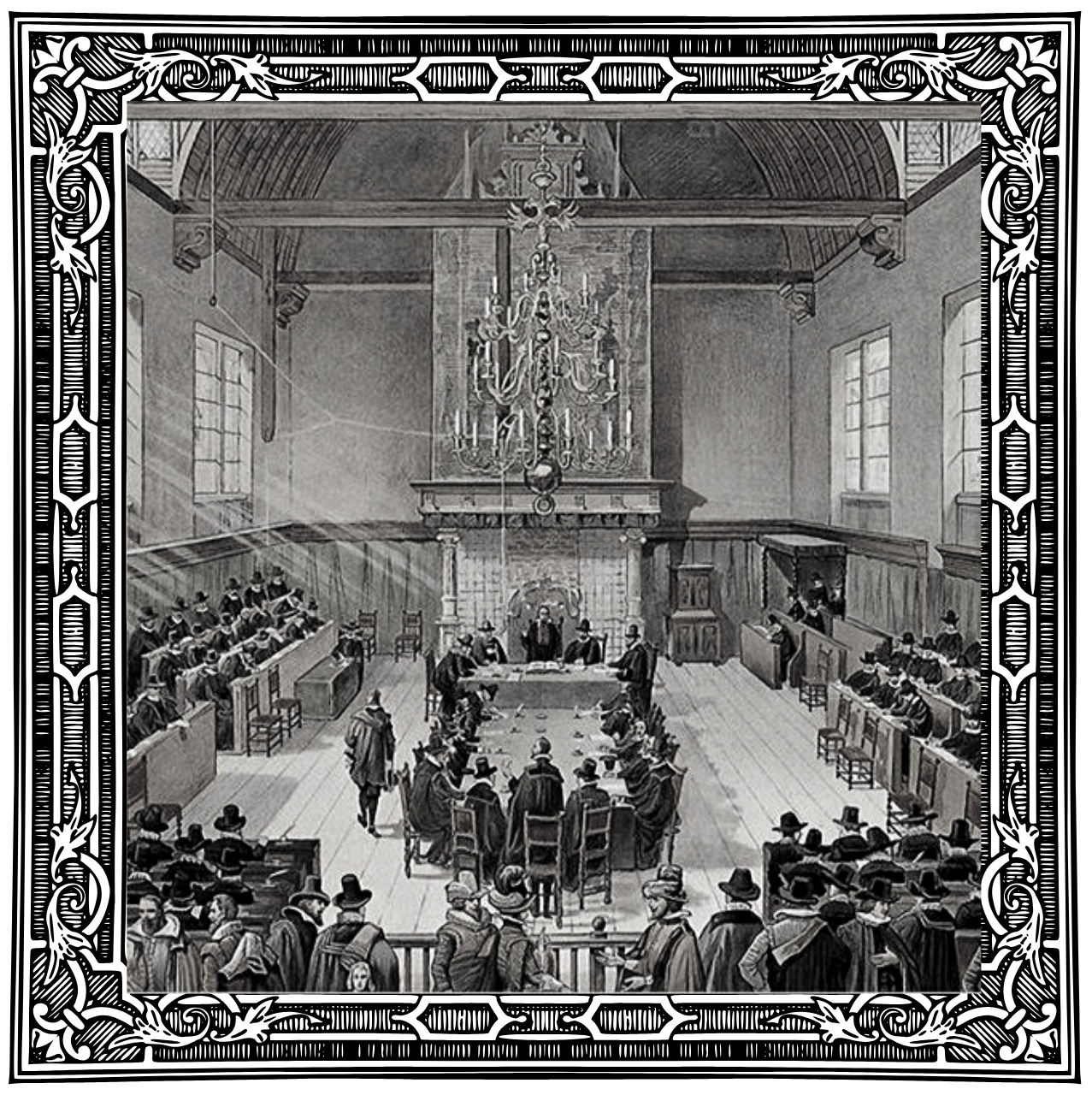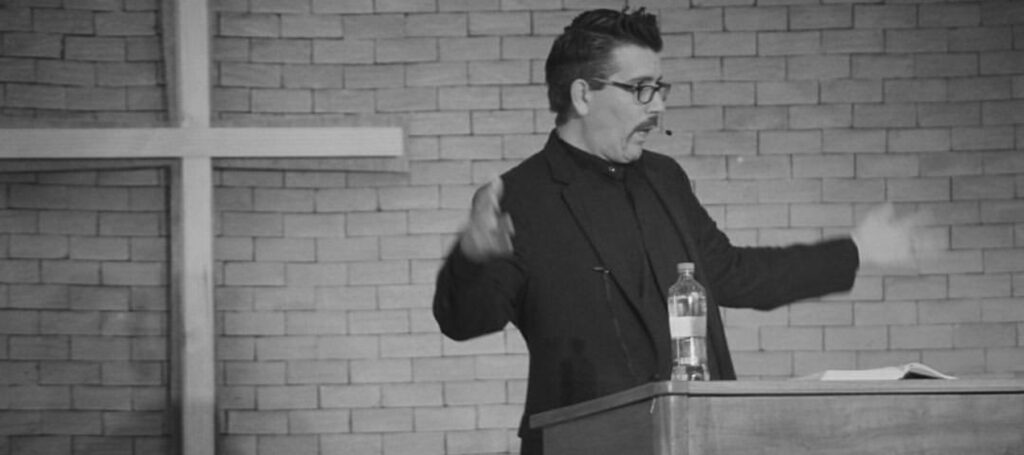“I accept the resurrection of Jesus not as an invention of the community of disciples, but as an historical event.” Take a moment to ponder that statement. Any guesses who said it? They’re not from a Christian theologian. They’re not from some over-zealous evangelist trying to persuade you. These words come from the Jewish rabbi and theologian, Pinchas Lapide (1922–97).[1] Although he didn’t accept Jesus of Nazareth as Israel’s Messiah, he studied the New Testament and ancient documents, concluding that Jesus really lived, died, and was resurrected. Amazing.
Christians the world over say antiphonally on Resurrection or Easter Sunday, “Alleluia! Christ is risen! The Lord is risen indeed! Alleluia!” “Christ the Lord is risen today. Alleluia!” This song is sung in untold languages every year. “…the third day He rose again, according to the Scriptures.” God’s people everywhere recite this creed. “Now after the Sabbath, toward the dawn of the first day of the week.” This Gospel is read in cathedrals, chapels, caves, and clandestine churches in all four corners of the world. There’s a reason why for thousands of years looking forward to the resurrection event and for two thousand years looking back, millions upon millions of men, women, and children have celebrated the resurrection of Jesus: it’s true. As the rabbi-turned-Christian missionary, Paul, wrote: “But in fact Christ has been raised from the dead” (1 Corinthians 15:20). What’s the case for the resurrection I can offer?
Preempting an Objection
Let me preempt what I assume will be your first objection: “you’re arguing for the resurrection from the Bible.” Yes, I am. I encourage you to read my previous article The Case for the Cross. In sum, ancient Jewish rabbis, Roman historians, and non-Christian philosophers all wrote that Jesus really existed and really died. The historical evidence is the same for the existence of Julius Caesar. As far as the reliability of the Bible goes, there’s more than one thousand times more manuscript data for the New Testament than for the average ancient Greco-Roman author. Further, the extant manuscripts of these authors is no earlier than five hundred years after the time they wrote. For the New Testament, it’s only decades between the events and the writing. We have 5,700+ Greek New Testament manuscripts, 10,000 Latin manuscripts, and over 1,000,000 known references to the New Testament in the ancient church fathers.
The Evidence of Prophecy
The Case for the Resurrection is found in the evidence of prophecy. In 1 Corinthians, Paul wrote to ancient citizens of Corinth — the modern equivalent of Las Vegas. They turned their backs on ancient philosophy, Roman religion, and for some, Judaism. Why? Because, as Paul says of Jesus, “he was raised on the third day in accordance with the Scriptures” (1 Cor. 15:4).
Imagine tracing your family tree back one hundred, five hundred, or even one thousand years. Then you discovered letters from several ancestors who lived at different times and in different places. In those letters they described a descendent to come—where he or she would be born, what kind of things he or she would do, what kind of death he or she would die, and that he or she would come back to life. This is what the Old Testament does with Jesus.
The greatest proof of the reliability and truthfulness of the Bible and the claim of the resurrection of Jesus Christ, is the fact that the Bible makes astounding claims and then backs them all up. In the first book of the Bible, Genesis, we read about God commanding Abraham to sacrifice his son, Isaac (Gen. 22). This was 2,000 years before the birth of Jesus. Why did Abraham do this? The New Testament explains that it was because Abraham believed God could raise Isaac up from the dead, which was prophetic of Jesus (Hebrews 11:17–19). 1,000 years before Jesus, King David prophesied in a prayer: “For you will not abandon my soul to Sheol, or let your holy one see corruption” (Psalm 16:10). But he did die; he did disintegrate into ashes and dust. The New Testament says this was a prophecy of the resurrection of David’s greater son, the coming King, our Jesus Messiah (Acts 2:22–36). As Peter says, “…his tomb is with us to this day” (Acts 2:29). Ask yourself, if there was a tomb with a body, why didn’t the Jews or Romans or anti-Christian philosophers just point people to it to prove their point? The prophet Isaiah once spoke words of hope to devastated Israel, that one day God would keep his promise to David to seat his son on the eternal throne. 700 years before Jesus, Isaiah called this “the sure mercies of David” (Isa. 55:3; KJV). Around the same time Hosea preached to Israel as they were in exile, longing to return to the Promised Land: “Come, let us return to the Lord; for he has torn us, that he may heal us; he has struck us down, and he will bind us up. After two days he will revive us; on the third day he will raise us up, that we may live before him” (Hos. 6:1–2).
The greatest prophecies of all are Jesus’ own predictions. All four Gospels record Jesus predicting his death and resurrection:
As they were gathering in Galilee, Jesus said to them, “The Son of Man is about to be delivered into the hands of men, and they will kill him, and he will be raised on the third day.” (Matthew 17:22–23)
They went on from there and passed through Galilee. And he did not want anyone to know, for he was teaching his disciples, saying to them, “The Son of Man is going to be delivered into the hands of men, and they will kill him. And when he is killed, after three days he will rise. (Mark 9:30–31)
The Son of Man must suffer many things and be rejected by the elders and chief priests and scribes, and be killed, and on the third day be raised. (Luke 9:22)
…I lay down my life that I may take it up again. No one takes it from me, but I lay it down of my own accord. I have authority to lay it down, and I have authority to take it up again. (John 10:17–18)
Once, Jesus flipped over the money tables in the temple of God because the religious leaders were out for money more than serving God. Then we read:
So the Jews said to him, “What sign do you show us for doing these things?” Jesus answered them, “Destroy this temple, and in three days I will raise it up.” The Jews then said, “It has taken forty-six years to build this temple, and will you raise it up in three days?” But he was speaking about the temple of his body. When therefore he was raised from the dead, his disciples remembered that he had said this, and they believed the Scripture and the word that Jesus had spoken. (John 2:18–22)
To make such claims makes Jesus was either a religious lunatic, a bald-faced liar with a really good poker face, or Lord of the universe—and of your life, whether you like it or not. Which one is it? Prophecy made and prophecy fulfilled evidences Jesus’ resurrection . The 16th century Protestant confession of faith known as the Belgic Confession starkly states: “For even the blind themselves are able to see that the things predicted in [the Bible] do happen” (art. 5).
The Evidence of Eyewitnesses
The Case for the Resurrection is found in the evidence of eyewitnesses. Again Paul says in 1 Corinthians 15:
…he appeared to Cephas, then to the twelve. Then he appeared to more than five hundred brothers at one time, most of whom are still alive, though some have fallen asleep. Then he appeared to James, then to all the apostles. Last of all, as to one untimely born, he appeared also to me. (vv. 5–8)
Cephas, or Peter; the twelve disciples as a group; five hundred believers at one time; James, the leader of the church in Jerusalem; then all the apostles; and finally Jesus appeared to Paul. And this does even take into account the women mentioned in the Gospel narratives: Mary Magdelene, Mary the mother of James, Salome, and Joanna (Matt. 28:1; Mark 16:1; Luke 24:10). Why is that so significant? Did you know that a woman’s testimony was not allowed in court in ancient Judaism? The importance of that is that if Jesus’ followers were making Christianity up, why would they record that the very first witnesses of his resurrection were women? That’s the opposite of what you would do — unless it really happened that way! What’s also fascinating is how Paul also doesn’t specifically mention the reaction of the tomb guards (Matt. 28:11–15; cf. 27:62–66). Why is their eyewitness so important? Because Roman law said that a centurion who lost what he was guarding or left his guard post was to be executed!
But you might say, “Of course men like Paul wrote this, he believed.” The myth that Jesus was stolen from the tomb by his deluded disciples has been around since the resurrection itself (Matt. 28:11–15). Another myth is that of the Qu’ran, which says that Jesus didn’t even die, and therefore did not rise again, but instead, his disciple hallucinated and thought they saw him on the cross (4:157–158). More recently others have perpetrated the idea that the coolness of the tomb revived the passed-out Jesus. In response, listen again to Pinchas Lapide:
If the defeated and depressed group of disciples overnight could change into a victorious movement of faith, based only on autosuggestion or self-deception — without a fundamental faith experience — then this would be a much greater miracle than the resurrection itself.[2]
Either Jesus was real, really died, and really rose again, or the entire Christian religion comes toppling down. This is why Paul argues so strongly and so confidently from the hypothetical, “If Christ has not been raised” (1 Cor. 15:14, 17). The evidence of these eyewitnesses is just as reliable as those who witnessed the battle of Thermopylae between the Spartans and the Persians in 480bc, the assassination of Julius Caesar on the Ides of March, 44bc, the destruction of the temple in Jerusalem in 70ad, or any other number of ancient persons and events that we all know actually happened. The fact that the Gospel narratives and the apostles describe in such honest ways their own doubts about Jesus’ resurrection, their ease of denying him, their literally going into hiding after his death, and their dismissal of the first reports of the resurrection is evidence they told the truth. The Bible isn’t a sanitary record; it wasn’t written in the genre of fairy tale or myth; it was written as you would’ve written firsthand. Hear their eyewitness and believe!
The Evidence of Transformed Lives
The Case for the Resurrection is found in the evidence of transformed lives: “For I am the least of the apostles, unworthy to be called an apostle, because I persecuted the church of God. But by the grace of God I am what I am, and his grace toward me was not in vain.” (1 Cor. 15:9–10) Saul of Tarsus was one of the up and coming rabbis in Judaism in the early part of the first century. He had studied under the famed rabbi, Gamaliel (Acts 22:3). He described his education as “according to the strict manner of the law of our fathers” (Acts 22:3). This is why he says of himself elsewhere that he was “a Hebrew of Hebrews; as to the law, a Pharisee; as to zeal, a persecutor of the church; as to righteousness under the law, blameless” (Philippians 3:5–6).
What Paul says in 1 Corinthians 15 is that because of the resurrection of Jesus the Messiah, Paul the persecutor became Paul the preacher; Paul the opponent became Paul the apostle. What about you? The power of Jesus Christ’s resurrection to transform humanity over the past two thousand years should not and cannot be discounted so lightly. As Lapide said:
When this scared, frightened band of apostles which was just about to throw away everything in order to flee in despair to Galilee; when these peasants, shepherds, and fishermen, who betrayed and denied their master and failed him so miserably, suddenly could be changed overnight into a confident mission society, convinced of salvation and able to work with much more success after Easter than before, then no vision or hallucination is sufficient to explain such a revolutionary transformation.[3]
What explains this transformation? Jesus is Lord; his grace is the invincible power of God that saves everyone who believes.
The Significance for You
On Easter, Christians across the world celebrate: “He is not here, for he has risen, as he said” (Matt. 28:6). How do we celebrate? Not with Easter eggs hunts, bounce houses, candy, and games, we celebrate in sermon, sacrament, and song. What is it we celebrate? Not the feel-good religion you read about in those direct mail ads you receive annually from well-meaning churches. We celebrate the fact that a tomb that once held the body of a first century Jew is empty. We celebrate that this man — who’s also God — is alive.
Why do we celebrate? Back in 1 Corinthians 15 Paul makes a stark contrast: it’s resurrection or nothing. Either Jesus rose from the dead and everything he said is true, or he didn’t and he’s a liar, I’m a liar, and all Christians in history are liars. Paul put it all on the line when he asked “if Christ has not been raised” (vv. 14, 17). Paul put it all on the line and I’m doing so too; I hope you’ll join us! Why put it all on the line? Because Christianity is a public religion. Its claims are falsifiable or verifiable. We don’t have a religion like Islam or Mormonism where you have to believe what one man said happened to him when no one else was around. We don’t have a religion like Buddhism or Hinduism, which aren’t historically based religions; they’re philosophies you either believe or don’t. Our religion makes claims about God creating the world, about our being sinners in need or forgiveness, and of Jesus being the Savior who lived and died. All of it stands or falls with the resurrection.[4]
The significance of Jesus’ resurrection for you and me is found in that word “if.” If Jesus didn’t rise “our preaching is in vain” (v. 14)—vain and vacuous, meaningless and substanceless. If Jesus was still dead and in that tomb as dust decomposed by the sands of time, what am I doing as a preacher? “Oh, but at least you’re sincere; at least you mean well.” Seriously! Do you realize how bad it is for me to be proclaiming the empty tomb if it isn’t empty? “We are even found to be misrepresenting God, because we testified about God that he raised Christ” (1 Cor. 15:15). If Jesus didn’t rise “your faith is in vain” (vv. 14; 17). Why? If Jesus didn’t rise you are placing your eternal destiny and hope of living with God in heaven in a guy who’s no different than some Joe Schmoe at the local cemetery. If Jesus didn’t rise “you are still in your sins” (v. 17). A man who preached that if you trusted in him you’d be forgiven, who was crucified and buried, and then remained in the ground would be powerless to free you from sin. If he couldn’t free himself from the grave how could he free you from sin? He may have said he would die for your sins but without the resurrection there’d be no proof. If Jesus didn’t rise all those who have died trusting in Jesus have perished: “those also who have fallen asleep in Christ”—a euphemism for death—”have perished” (v. 18). Just like your faith is now in vain so all those who died placing their faith in Jesus did so in vain. They thought they were going to heaven and we piously think they’re there; but this is vanity as they’re just in the grave, rotting away. If Jesus didn’t rise then “we have hope in this life only, we are of all people most to be pitied” (v. 19). Pitied like all those gullible, weak-minded people throughout the ages and in our time who follow some charismatic leader even to the point of death.
What would be different if Jesus didn’t rise from the tomb? Everything! If he didn’t rise, “Let us eat and drink, for tomorrow we die” (1 Cor. 15:32). But he did! It’s resurrection or nothing. Because he did, my preaching is not in vain, my faith is not in vain, I’m not in my sins anymore, those who died in faith are with the Lord, and we Christians are of all men most to be envied! The significance of Jesus’ death and triumph back to life is that he gives life to those like me—and you—who are dead in sin. What more proof do you need? What are you waiting for? Give yourself to Jesus, receive his forgiveness of your sins, experience the joy of knowing you have eternal life, begin to serve your Creator and Redeemer by living a new life today, and follow him through this life into eternity. “But I have so many questions; I have so many doubts.” So do I; bring them with you! As you follow him, he’ll lead your mind and heart in understanding.
[1] Pinchas Lapide, The Resurrection of Jesus: A Jewish Perspective trans. Wilhelm C. Linss (Minneapolis: Augsburg Fortress, 1982).
[2] Lapide, The Resurrection of Jesus, 126.
[3] Lapide, The Resurrection of Jesus, 125.
[4] See Michael Patton, “Christianity, the World’s Most Falsifiable Religion.” As found at http://credohouse.org/blog/christianity-the-worlds-most-falsifiable-religion.







